- CMS: Medicare Program; Implementation of Prior Authorization for Select Services for the Wasteful and Inappropriate Services Reduction (WISeR) Model
- Public Inspection: CMS: Medicare Program: Implementation of Prior Authorization for Select Services for the Wasteful and Inappropriate Services Reduction Model
- CMS: Secretarial Comments on the CBE's (Battelle Memorial Institute) 2024 Activities: Report to Congress and the Secretary of the Department of Health and Human Services
- HHS: Patient Protection and Affordable Care Act: Marketplace Integrity and Affordability
- HRSA Announces Action to Lower Out-of-Pocket Costs for Life-Saving Medications at Health Centers Nationwide
- Public Inspection: HHS: Patient Protection and Affordable Care Act: Marketplace Integrity and Affordability
- Increased Risk of Cyber Threats Against Healthcare and Public Health Sector
- Eight Hospitals Selected for First Cohort of Rural Hospital Stabilization Program
- Announcing the 2030 Census Disclosure Avoidance Research Program
- CMS: Medicare Program; Hospital Inpatient Prospective Payment Systems for Acute Care Hospitals and the Long-Term Care Hospital Prospective Payment System and Policy Changes and Fiscal Year 2026 Rates; Requirements for Quality Programs; and Other Policy Changes; Correction
- CMS: Medicare Program; Hospital Inpatient Prospective Payment Systems for Acute Care Hospitals and the Long-Term Care Hospital Prospective Payment System and Policy Changes and Fiscal Year 2026 Rates; Requirements for Quality Programs; and Other Policy Changes; Correction
- CMS: Medicare and Medicaid Programs; Contract Year 2026 Policy and Technical Changes to the Medicare Advantage Program, Medicare Prescription Drug Benefit Program, Medicare Cost Plan Program, and Programs of All-Inclusive Care for the Elderly; Correction
- CMS: Medicare and Medicaid Programs; Contract Year 2026 Policy and Technical Changes to the Medicare Advantage Program, Medicare Prescription Drug Benefit Program, Medicare Cost Plan Program, and Programs of All-Inclusive Care for the Elderly; Correction
- CMS: Medicare Program; Prospective Payment System and Consolidated Billing for Skilled Nursing Facilities; Updates to the Quality Reporting Program for Federal Fiscal Year 2026
- CMS: Medicare Program; FY 2026 Hospice Wage Index and Payment Rate Update and Hospice Quality Reporting Program Requirements
Pennie Releases Data on Medicaid Unwinding Conversion Rate
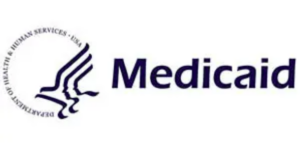 From April 2023 to Feb. 2024, Pennie engaged 412,070 Medicaid unwinding applicants through transfers from Medicaid and direct enrollments. Of the applicants, 61,567 enrolled in a plan for an average total conversion rate of 15% as of April 30. Philadelphia, Allegheny, Delaware, Berks, and Lehigh counties saw the largest number of unwind applicants. Unwinding consumers tend to pay less for coverage than other consumers due to the additional tax credits and cost-sharing reductions based on household size and income: 23% of enrollees paid less than $1 and 55% of enrollees paid $50 or less for a plan. The majority of the unwinding population, totaling 81% of enrollees, fell below 250% of the Federal Poverty Level and chose Gold or Silver plans. The data shows unwind consumers tend to be younger than the average consumer, more likely to be female, and more likely to be non-Hispanic/Latino. To view additional data, go to the May Pennie Board Meeting Deck.
From April 2023 to Feb. 2024, Pennie engaged 412,070 Medicaid unwinding applicants through transfers from Medicaid and direct enrollments. Of the applicants, 61,567 enrolled in a plan for an average total conversion rate of 15% as of April 30. Philadelphia, Allegheny, Delaware, Berks, and Lehigh counties saw the largest number of unwind applicants. Unwinding consumers tend to pay less for coverage than other consumers due to the additional tax credits and cost-sharing reductions based on household size and income: 23% of enrollees paid less than $1 and 55% of enrollees paid $50 or less for a plan. The majority of the unwinding population, totaling 81% of enrollees, fell below 250% of the Federal Poverty Level and chose Gold or Silver plans. The data shows unwind consumers tend to be younger than the average consumer, more likely to be female, and more likely to be non-Hispanic/Latino. To view additional data, go to the May Pennie Board Meeting Deck.
U.S. House Subcommittee on Oversight and Investigations to Hold “Oversight of 340B Drug Pricing Program” Hearing
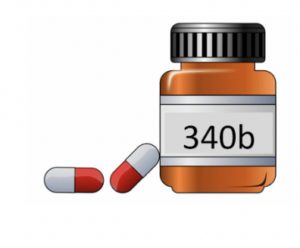
The Oversight and Investigations Subcommittee of the House Energy and Commerce Committee has scheduled a hearing on “Oversight of the 340B Drug Pricing Program” for Tuesday, June 4 at 10:30 am. The list of witnesses has yet to be announced. The hearing will be open to the public and press and will be live streamed online. Visit the committee website to learn more.
House Members Introduce Legislation to Ensure Access and Transparency in 340B Drug Pricing Program
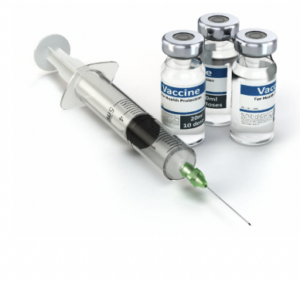
U.S. Representatives Larry Bucshon, MD (R-IN-08), Buddy Carter (R-GA-01), and Diana Harshbarger (R-TN-01) introduced the 340B Affording Care for Communities and Ensuring a Strong Safety-Net Act (340B ACCESS Act). This legislation, H.R. 8574, establishes critical oversight and transparency of the 340B program while providing clear, practical, and achievable solutions to ensure the 340B program can be a force for good in the nation’s health care safety net. The 340B ACCESS Act seeks to capture the policy principles which reflect the consensus of ASAP 340B members and will guide efforts to realign the 340B program in the interest of true safety-net providers and the communities they serve. Here are a few key highlights for those of us not in the weeds on 340B. This legislative solution:
· Protects Community Health Centers’ ability to serve all patients, regardless of their ability to pay, by increasing access to affordable medications and health services for medically underserved communities.
· Restores access to unlimited contract pharmacies, including access to mail order and specialty pharmacies, enabling greater access for health center patients.
· Ensures health centers and their patients have access to affordable medications for prescriptions written by specialty providers.
· Stops “middlemen” (corporations that seek to profit from savings) from taking the savings away from the health center that is providing overall care to the patient and their community.
· Increases transparency and accountability for all stakeholders in the program.
Click here to learn more. Call and email your Representative and ask them to cosponsor this legislation! NACHC is hosting a webinar on June 3 at 3:00 pm to provide additional information about the legislation. Register here.
Pennsylvania Human Services Department’s Website Update in Process
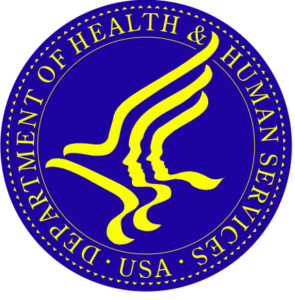 In partnership with the Governor’s Office and the Commonwealth’s web development vendor, the Department of Human Services (DHS) is moving to a new public-facing website platform. Deployment of the new platform began the evening of Tuesday, May 28. This transition will only affect dhs.pa.gov, and will not affect COMPASS, CWIS, PROMISe, PELICAN, or any other custom developed platforms. With a project of this size, DHS anticipates there could be some errors, potential disruptions, and growing pains. DHS is working closely with the Governor’s Office and the web development vendor and will be triaging and correcting issues as they are identified. If providers and partners experience any functional disruption, error, and/or are unable to access essential business content or services, please report them via the DHS Feedback Form under “Website Feedback” – the first option. Check your bookmarks for updates.
In partnership with the Governor’s Office and the Commonwealth’s web development vendor, the Department of Human Services (DHS) is moving to a new public-facing website platform. Deployment of the new platform began the evening of Tuesday, May 28. This transition will only affect dhs.pa.gov, and will not affect COMPASS, CWIS, PROMISe, PELICAN, or any other custom developed platforms. With a project of this size, DHS anticipates there could be some errors, potential disruptions, and growing pains. DHS is working closely with the Governor’s Office and the web development vendor and will be triaging and correcting issues as they are identified. If providers and partners experience any functional disruption, error, and/or are unable to access essential business content or services, please report them via the DHS Feedback Form under “Website Feedback” – the first option. Check your bookmarks for updates.
Treasury Collections Loom Big in Budget Picture
An unusual boost in a state revenue source could have an impact on negotiations leading to the anticipated passage of the next state budget next month. It’s called the Treasury Windfall. The term refers to a large multi-year jump in Treasury collections going to the General Fund. The state Independent Fiscal Office (IFO) projects that Treasury will send $780 million for Fiscal Year 2023-24. Treasury collections totaled $452 million in Fiscal Year 2022-23, a dramatic jump from $23 million in Fiscal Year 2021-22, according to the IFO. Treasury collections are projected at $600 million at this stage for Fiscal Year 2024-25. The entire state budget this year is in the $44 billion range to put this windfall in perspective. The $780 million anticipated in Treasury collections for this fiscal year is 26% of the cost of the two rival initiatives that appear at the heart of this year’s budget debate.
Grantmakers in Health: a New Philanthropic Approach to Supporting Rural Health
A paper from the national nonprofit, Grantmakers in Health, discusses the Imperial Vally Wellness Foundation’s efforts to support community development and health equity through its implementation of the Rural Development Hub model.
Senate Hearing: Examining Public Safety and Justice Resources in Native Communities
 Captions are included in a video recording of 2.5 hour meeting of the U.S. Senate Committee on Indian Affairs that took place on May 22. The link includes transcript of testimony from Bryan Newland from the Department of the Interior, Patrice Kunesh from the Department of Health and Human Services, and Allison Randall from the Department of Justice. Each witness discussed and answered questions from the committee on drug-related crime, human trafficking, and violence and abuse.
Captions are included in a video recording of 2.5 hour meeting of the U.S. Senate Committee on Indian Affairs that took place on May 22. The link includes transcript of testimony from Bryan Newland from the Department of the Interior, Patrice Kunesh from the Department of Health and Human Services, and Allison Randall from the Department of Justice. Each witness discussed and answered questions from the committee on drug-related crime, human trafficking, and violence and abuse.
Discover FORHP’s Rural Health Network Development Planning Program: 2023 Grantee Directory
This resource provides detailed descriptions of 36 projects funded in fiscal year 2023, listing grantees by organization type and focus area, and describing their network structures, geographic areas served, network partners, and contacts for each network.
Addressing Benefits of Becoming a National Health Service Corps Approved Site.
 In this five-minute video, a clinician working at a Rural Health Clinic talks about her experience at an NHSC-approved site in Wisconsin.
In this five-minute video, a clinician working at a Rural Health Clinic talks about her experience at an NHSC-approved site in Wisconsin.
New Data Released on Medicaid and CHIP and Maternal Health
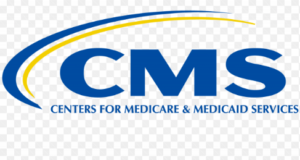 This infographic from the Centers for Medicare & Medicaid Services (CMS) provides a snapshot of demographics, health outcomes, risk factors, access and utilization, and disparities among Medicaid and Children’s Health Insurance Program (CHIP) beneficiaries seeking pregnancy-related care and those with a recent live birth. It shows the states with the highest percentage of Medicaid and CHIP beneficiaries ages 15-49 living in rural areas as well as the number of general obstetrics and gynecology physicians and advanced practice midwives per 100,000 women ages 15–49. This data analysis informed the Medicaid and CHIP Maternal and Infant Health Initiative Summer 2024 Webinar Series, occurring every Tuesday at 2:00 pm Eastern, and the CMS Affinity Groups scheduled for this fall on maternal mental health and substance use and maternal hypertension and cardiovascular health.
This infographic from the Centers for Medicare & Medicaid Services (CMS) provides a snapshot of demographics, health outcomes, risk factors, access and utilization, and disparities among Medicaid and Children’s Health Insurance Program (CHIP) beneficiaries seeking pregnancy-related care and those with a recent live birth. It shows the states with the highest percentage of Medicaid and CHIP beneficiaries ages 15-49 living in rural areas as well as the number of general obstetrics and gynecology physicians and advanced practice midwives per 100,000 women ages 15–49. This data analysis informed the Medicaid and CHIP Maternal and Infant Health Initiative Summer 2024 Webinar Series, occurring every Tuesday at 2:00 pm Eastern, and the CMS Affinity Groups scheduled for this fall on maternal mental health and substance use and maternal hypertension and cardiovascular health.
